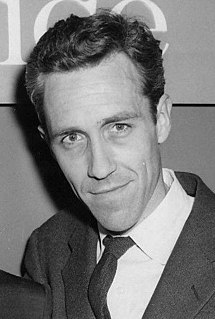A Quote by James Gray
What a director really does is set the emotional temperature and the mood and the level, amount, or lack of, distance between the action and the character, and the character and the audience.
Related Quotes
Names generate meaning in a short amount of space — they provoke thoughts, questions. That's something I like doing. Of course, you have to be careful. Sometimes it can alienate the reader, it can be another level of mediation, to make a character carry the great burden of a metaphoric name. The character can be a device before he or she becomes a person, and that can be a bad thing for a writer who wants to offer up a kind of emotional proximity in the work. It's a constant struggle, the desire to be playful and the desire to communicate on some very stark emotional level.
You have a certain objectivity, as a member of the audience, and you can come away maybe being provoked into a certain discourse or a certain arena of questioning, regarding how you would deal with things that your character has to deal with. Whereas when you're doing a film, once you start asking, "What would I do?," you're getting the distance greater between yourself and the character, or you're bringing the character to you, which I think is self-serving, in the wrong way. The idea is to bring yourself to the character.
A novel can be set in motion by an incident, a character, a location, a mood - by anything at all. Sometimes the stimulus can be an idea, which will rapidly clothe itself in character and incident. 'Foreign Bodies' came about through the contemplation of the contrast between post-second world war America and Europe.
I think there's a fundamental distinction between character-driven movies that are just really lovely slice-of-life movies and character-driven movies that you remember 20 or 30 years later; the common denominator with the ones you remember is that they all have some really complicated emotional problem at their core.






































